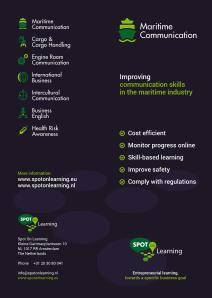Maritime Communication Program
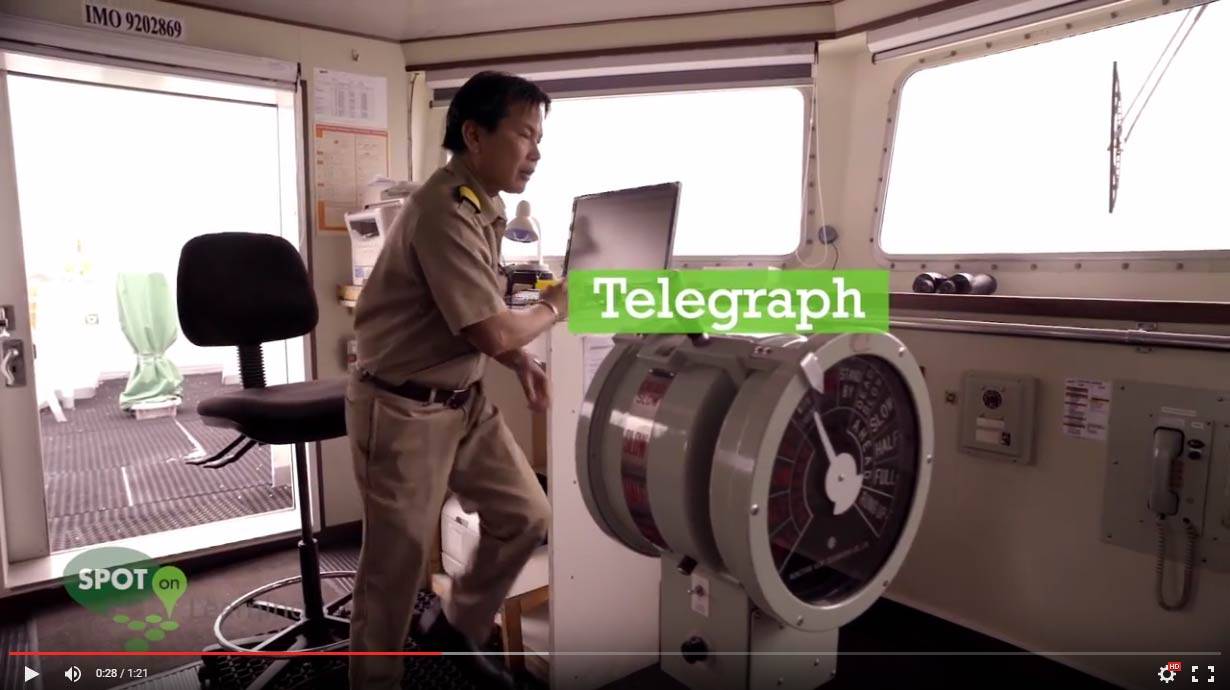 The program starts with an online test and then helps maritime professionals reach the required level of General English. Then they can work on their maritime English. Videos recorded on board of ships and in ports helps seafarers and office workers master the English they need to work safely and efficiently in the maritime industry. Words from IMO's SMCP list are part of the vocabulary Spot On Learning teaches.
The program starts with an online test and then helps maritime professionals reach the required level of General English. Then they can work on their maritime English. Videos recorded on board of ships and in ports helps seafarers and office workers master the English they need to work safely and efficiently in the maritime industry. Words from IMO's SMCP list are part of the vocabulary Spot On Learning teaches.
Learning program for seafarers and other professionals in the maritime business
Spot On Learning has developed business English courses for the shipping industry and other maritime sectors. These courses help professionals with different nationalities and cultural backgrounds communicate effectively and with ease. This is important for safety reasons but it also helps companies that employ people from all over the world maintain high quality standards in a very dynamic and competitive environment.
Maritime English Education Program step-by-step
- The client provides us with names of the professionals that are to enter the program and have time to work on their English several times a week for at least half an hour to an hour during a certain period (normally two or three months).
- Participants are invited to access their personal my.spotonlearning.eu learning environment. They go through a short online introduction. In an interactive way they are introduced to the program they are about to start. This introduction program can be customized to match specific requirements of regular clients (or their principals).
- To begin with, participants are to take two tests to determine their entry level. One test, the Grammar & Vocabulary Test, is an online multiple choice test that participants can complete when it suits them. For officers we can add a Reading & Writing Module to this online test. Participants plan the second test, the 'CEFR level test', on the video learning platform EnglishCentral. That test is taken by an English teacher in an online interview. It is a 20-minute conversation that results in a CEFR score and several subscores (grammar & vocabulary, pronunciation, speaking, fluency, listening). All test results are explained in personalized reports. Together these tests provide a rich picture of the English language skills of a participant and where and how they can and should be improved.
- Block 1: General English courses. If the proficiency level of a participant is lower than required he will start with general English courses that matches their current level and helps improve pronunciation, fluency, understanding and vocabulary. In practice we see that especially pronunciation and fluency improve quickly. The innovative EnglishCentral platform, the speech technology behind it, the automated feedback and online progress monitoring & coaching by SOL have been shown to be very effective. The required level differs, depending on for instance company standards, regulations, or job title of the participant.
- For participants that are more than 1 CEFR level below the required level Spot On Learning has developed several ways to accelerate learning. One of our accelerating courses includes weekly online tutoring sessions.
- Progress and results are monitored closely by Spot On Learning, all the while feedback is given to the participant in several ways. Spot On Learning monitors all learning activities (or lack of it!), they guide participants towards their learning goals. Participants receive personal feedback from the system and by email. Technical assistance is available for who needs it. Progress information and results are shared with the support network (HR, crewing dept. or agent). At Spot On Learning we call this our ‘all on the same screen’ support network (see below).
- After a first block of 2 months working on the General English courses measurable progress has been made in most cases.
- Block 2: Maritime English courses. When the general English of the participant is on the required level a next block of 'maritime courses' is scheduled for the participant. In this block specific vocabulary for the industry is taught. Spot On Learning has developed a list of words and phrases, based on the well-known SMCP list by the IMO, a UN maritime organisation.
- Block 3: Intercultural Communication in the Maritime World course (optional). Besides language, cultural differences can lead to misunderstandings and social problems. This is not surprising as it has become quite common to work with mixed crews. Overcoming the language barrier is one thing, but understanding each other having very different (cultural) backgrounds is also difficult, even if you speak the same language. Spot On Learning has developed a course to develop intercultural competences and in that way improve cross-cultural communication.
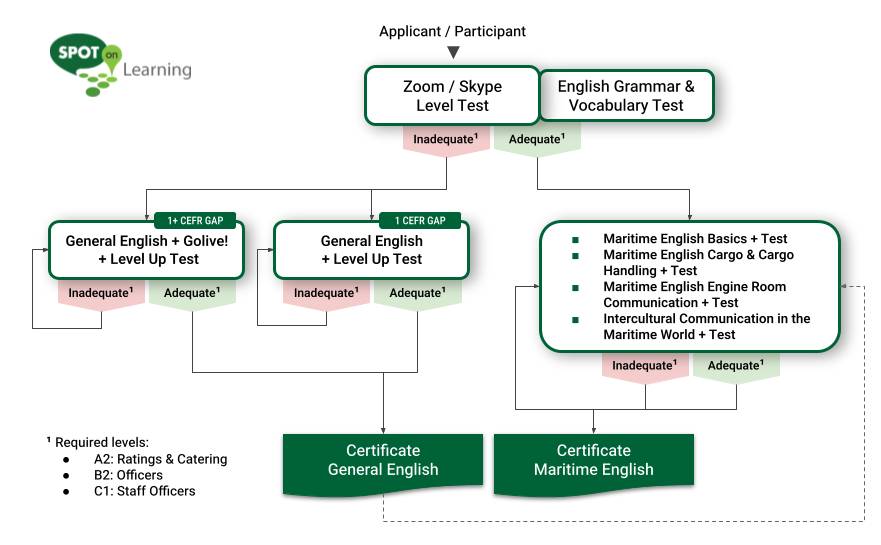
Building a support network
In order for the participant to reach its goal, he/she needs support from the client, the Spot On Learning Support Team and in some cases from a (local or online) teacher. This “supporting network“ and the different roles and tasks are detailed online here: https://my.spotonlearning.eu/744/how-share-information-about-learning.htm
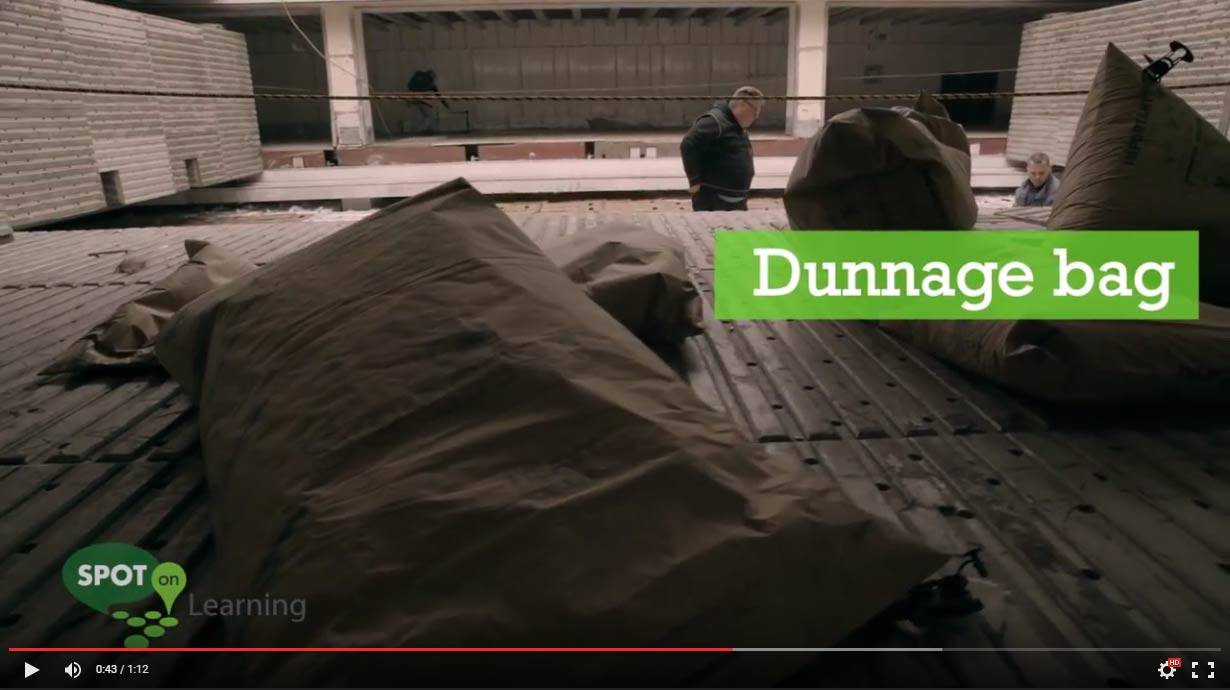 Improve pronunciation
Improve pronunciation
Thanks to the innovative work of our partner EnglishCentral (financed by Google Ventures, big in Asia, users in more than 100 countries) it is now possible to work on pronunciation online. Seafarers in the international maritime industry come from many countries like the Philipines, Indonesia, India and other Asian countries, Russia, Eastern-European countries, the Baltics, Scandinavia, Southern-European countries. Per country the English language proficiency differs but above all the way people pronounce English sound very different. It is now possible to greatly improve pronunciation online on EnglishCentral.
Specific vocabulary based on SMCP list (Standard Marine Communication Phrases)
In order to work safely and keep up quality standards necessary to keep demanding customers happy it is necessary to be able to communicate in English easily and without misunderstandings. The maritime organisation of the United Nations IMO has composed a list of phrases and words that all people in the maritime industry should know and understand. This is the so-called SMCP list (Standard Maritime Communication Phrases). Spot On Learning built on this list by adding other words that are important for workers in shipping and logistics. We build our courses on this list and keep on tweaking it and adding to it, to make sure it is relevant and up to date.
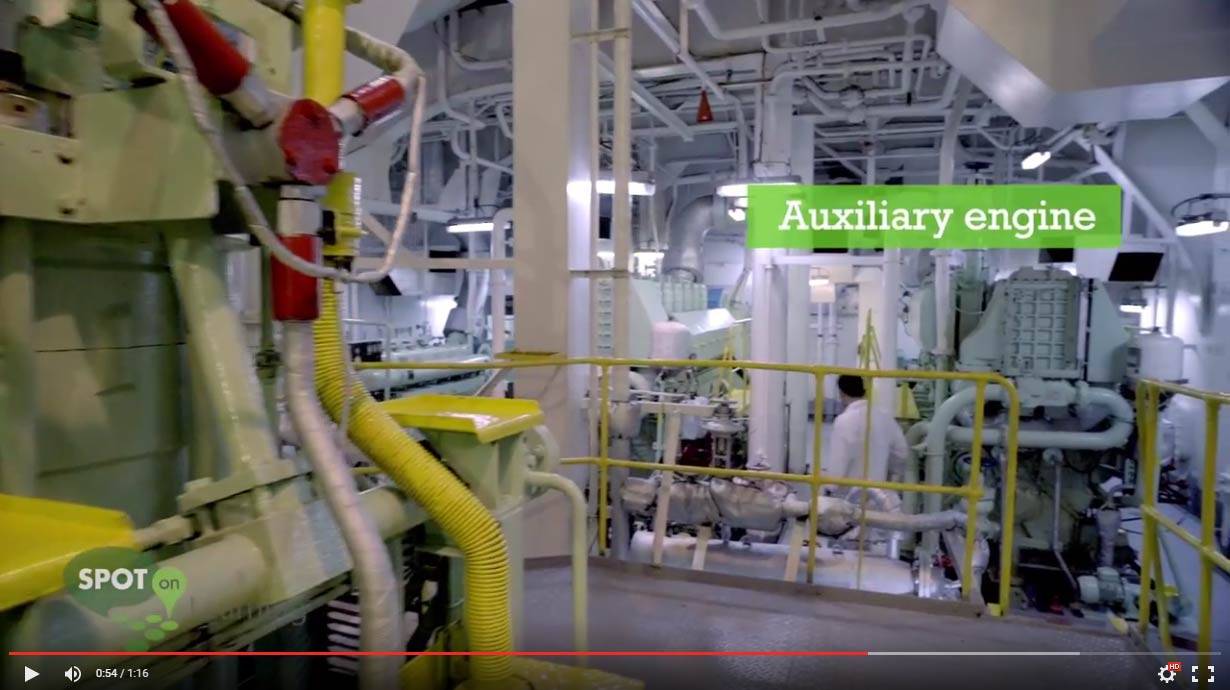
Learning made fun and easy + personal coaching = progress in English language proficiency
Shipping companies and other organisations active in the maritime industry want their workers to speak English at a certain level. They want them to keep practicing, in order to retain their language skills on the required level, or, even better, to keep improving their proficiency. Seafarers and other workers need to make an effort but their work is already very demanding. The Spot On Maritime Learning courses are designed to make learning easy and fun. Also learning can be done when and where the participants want. Many participants in our programs let us know that they like watching the videos and listening to them. Getting immediate feedback when speaking and typing keeps the students motivated. The social networking elements are designed to persuade them to keep on learning. Spot On Learning monitors progress of participants closely and offers support where and when it is needed. We ourselves learn everyday about what motivates most and helps our participants leverage their efforts.
Learning about learning
Spot On Learning is pleased to work with innovators in the shipping and maritime industry. They are of course interested in the cost reductions that our methods make possible, but also in the quality of the results and the possibility to measure everthing while going. We gather and share data and insights about what works best continuously. Our team is happy to share what we learn and experience. A first client case has been published in the summer of 2015 and we keep on sharing. Please let us know if you have questions or ideas about our work.
Please read…
Maritime English 'Cargo & Cargo Handling' Course
Intro video Cargo & Cargo Handling Course
Intercultural Communication in the Maritime World Course
Engine Room Communication in English (video)
Additional Learning Material to accelerate learning
Spot On Learning
Disketteweg 14
1033 NW Amsterdam
The Netherlands
info@spotonlearning.nl
Need support?
- Mail us at support@spotonlearning.nl
- Use chat/mail to contact us
- Check the FAQ's
